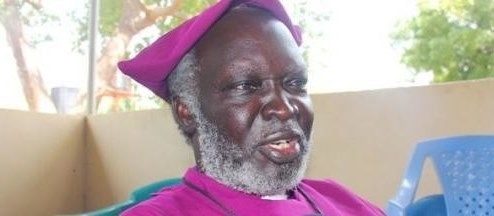Political leaders should desist from playing politics influenced by tribal sentiments, the retired Bishop of the Episcopal Church of Rajaf Diocese, Enock Tombe has warned.
Speaking on Radio Tamazuj’s Peace and Reconciliation programme on Thursday, Bishop Tombe said South Sudanese political leaders shouldn’t misuse tribes for their own political gains.
He further said politicians’ influence on tribes has, in recent years, been one of the most violent motives in South Sudan.
“The problem is that some politicians are using their tribes for political gains. In fact these policies and practices which are practiced by some intellectuals have affected all tribes in the country,” he said.
Politics influenced by tribal sentiments, Tombe added, negatively affects development programmes in the country.
The religious leader likened the current approach of South Sudanese political leaders to what used to be practiced in neighboring Sudan, but warned that its consequences were often harmful to most societies.
“The Sudanese government was using Islam and Arabism to gain political grounds among Sudanese. See now what is happening in Khartoum. Who is against who? I believe most of them are Muslims and Arabs. So, for me the problem was neither Islam nor Arabism but both have been misused for political purposes,” he said.
The Bishop said he expects change in South Sudan and that this year provides a new era for implementing the revitalized peace accord.
Tombe urged all tribes of South Sudan to renounce hatred in order for the country to achieve peace and necessary growth and development.
He called upon the country’s leaders to allow spaces for media freedom so that messages on peace and reconciliation can spread in South Sudan.




